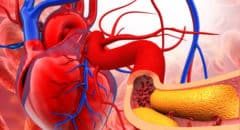
If you haven’t heard of ATTR-CM before, you’re not alone.
A rare disease with potentially fatal consequences, ATTR refers to transthyretin amyloidosis. While this medical terminology can get a little complex, basically ATTR affects something called amyloids.
What Are Amyloids?
Amyloids are proteins in our bodies. Although we need some level of proteins to survive and perform our basic functions, amyloids are different. Amyloids are abnormal proteins that can accumulate in all the wrong places.
If left unchecked or untreated, these protein build-ups can harm your organs, nerves, and everything in between. In the case of ATTR amyloidosis, the specific protein in question is called transthyretin.
Transthyretin becomes harmful due to its ability to adopt different shapes and forms, leading to the formation of clumps that can obstruct your organs. With too many of these fibrous clumps, your organs may fail to function.
ATTR-CM, or ATTR cardiomyopathy, is a specific type of ATTR affecting the heart.
RELATED: Staying Active Safely: Exercise Tips If You Have ATTR-CM
How Do I Know If I Have ATTR-CM?
ATTR-CM can either be inherited from your parents or the result of aging and other related health conditions. In the case of genetics, a person might inherit a certain ‘defect’ that causes these abnormal proteins to deposit in the heart. Although rare, ATTR-CM can be fatal when it progresses too far.
If the condition is inherited, individuals typically won’t notice symptoms till their 50s or 60s. If the condition is not genetic, individuals may not see symptoms till their late 60s or 70s.
Symptoms of ATTR-CM include:








